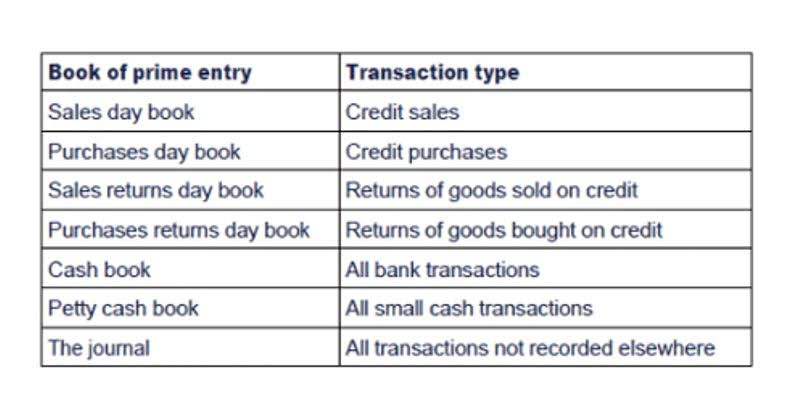AI in Accounting: How will artificial intelligence affect accountants?

Finally, we further condensed and aggregated these second-order codes based on their essence into five challenges of objectivity, privacy, transparency, accountability and trustworthiness as inductive top-level themes (Denzin, 2018). This approach provides an understanding of https://www.bookstime.com/ complex areas based on a qualitative content analysis rather than measuring effect sizes. Following Snyder (2019), Denzin (2018) and Parker and Northcott (2016), such an undertaking allows the detection of themes, theoretical perspectives and theoretical concept components.

Institutional Review Board Statement
(2018), “The impact of moral reasoning on whistleblowing intentions”, Research on Professional Responsibility and Ethics in Accounting, Emerald Publishing. (2019), “Using artificial intelligence to promote diversity”, MIT Sloan Management Review, Vol. To exemplify this process, please see Table 3, with examples of meaningful units and their coding. Our research methodology is rooted in the hermeneutics tradition (Prasad, 2002) of interpretative accounting research (Chua, 1988; Lehman, 2010; Lukka and Modell, 2010; Parker, 2008). Additionally, organizations need skilled personnel who can develop, deploy, and maintain AI solutions.
Products and services
- Intuit, launched in 1983, and Microsoft Excel, launched in 1985, did not, in fact, represent the demise of human bookkeepers, as many feared.
- Founded in 1976, CGI is among the largest IT and business consulting services firms in the world.
- With its power to enhance efficiency, mitigate risk, empower informed decision making and foster collaboration, AI is a game-changer for accounting firms and their clients.
- Because the accounting profession is traditionally compliance-focused, it is particularly prone to AI disruption.
- AI analyzes historical data and helps generate additional information and data for making more informed decisions.
- No need to spend a lot of money doing repetitive accounting tasks when AI can handle them within a short time.
- In other words, rather than comparing individual reports, our analysis focused on identifying similarities and dissimilarities and resulting patterns across the narrations of the situations in the articles.
Accounting professionals and businesses can strike a balance between AI and human intelligence, directing how the technology benefits clients while making their lives easier and giving them more freedom to pursue more extensive opportunities. However, numerous tech tools and resources make accounting easier, more accurate and more reliable. For example, combining accounting, artificial intelligence (AI) and automation can help businesses find a balance between human brainpower and modern technology.
Author Services
End-to-end Tipalti AP automation software integrates with any ERP system or accounting software as an add-on. Tipalti finance automation AI software uses AI/ML to digitally capture invoice benefits of artificial intelligence in accounting data fields with headings and line items using OCR scanning technology. Tipalti validates suppliers with TIN numbers and uses AI-driven processes to detect fraudulent activities.
The rapidly increasing role of AI in accounting and finance.
Artificial intelligence could be the technology that drives your firm into the future. Humans can give the data structure, which is why data preparation is such a critical and context-sensitive task. This element of ‘data science’ demands that human workflows feed smart data to machines in a way that supports their activities for greater end results. After ChatGPT’s launch revolutionised the technology world overnight in 2023, the conversation around artificial intelligence (AI) shifted. However, it’s important to note that AI is not a replacement for human expertise and judgment. AI can also help with document management, enabling auditors to easily locate and access relevant financial records and data.
- Computer vision allows computers to “see” and comprehend visual data, enabling them to analyze images and videos.
- He suggests that actors and the complexity of their interactions are a major source of ethical dilemmas.
- Many businesses are unleashing the power of AI, with AI solutions used in various applications, from recognizing speech and images to powering recommendation systems and even autonomous vehicles, making our lives easier and more efficient.
- In simple terms, a model is trained on a dataset, using statistical techniques to identify patterns, relationships, and trends.
- This study investigates the influence of AI and Robotic Process Automation (RPA) on the accounting profession and its consequences for accountants.
Renewable energy tax credits: Geothermal, solar, biomass, wind power, and more
While this may look like a precise example of how AI can replace bookkeepers, that is hardly the end of the story. In addition to continuous improvement, AI isn’t susceptible to human error and has around-the-clock capacity to work. Basil Practice Management is a cloud collaboration software designed specifically for accountants and tax professionals. Basil understands the transformative power of AI and offers features that integrate with AI to allow accountants to achieve more.

It can recognize text patterns, detect word meanings, and extract essential insights from data. Regarding accounting, NLP can convert documents into valuable data, automate data entry, and understand customer queries. As someone who has witnessed the benefits of AI firsthand, I’m excited about what the future holds. It’s a future where professionals and clients alike are empowered to make smarter financial and legal decisions and where AI serves as a trusted ally on this journey of innovation and progress. As AI technology grows and the accounting industry discovers different accounting software can help hasten the repetitive tasks for accountants.
- The automated trading platforms have enabled companies to optimize their profits margins and efficiency, allowing them to gain a competitive advantage in the market.
- Rather than jumping in headfirst, firms are looking to identify key areas and use cases where AI can have a major impact before investing too heavily in the technology.
- The solutions include advanced automated general ledger account coding of supplier invoices in accounts payable, and its Ask Pi digital assistant.
- Leaders can mitigate this by fostering a culture of innovation and providing clear communication about the benefits of AI adoption.
- The widely-used PayPal payment system utilizes machine learning to detect fraud.
- With AI by your side, you’re in a better position to offer advice to your clients and help them manage or grow their businesses.
- While the technology available to accountants is rapidly changing, so are the needs of their clients.
Let AI take care of the busy work for you, then use the results to create a road map for clients that will help them understand their financial reports. The accountant’s role will evolve as AI becomes more integrated into our workdays. AI can automate certain accounting tasks, making accountants more efficient and giving them time to focus more on analysis, advisory, and strategic decision-making. AI takes data management and processing that would consume the time of many people and presents it in a way that can be used, sometimes right away.

